Unlocking Potential with ABA Therapy
Building self-confidence in children with autism is essential for their development, enabling them to face challenges, seek independence, and develop social connections. Applied Behavior Analysis (ABA) stands out as a proven approach that can nurture and enhance confidence by teaching essential skills systematically and with personalized care.
The Role of ABA in Developing Confidence in Children with Autism
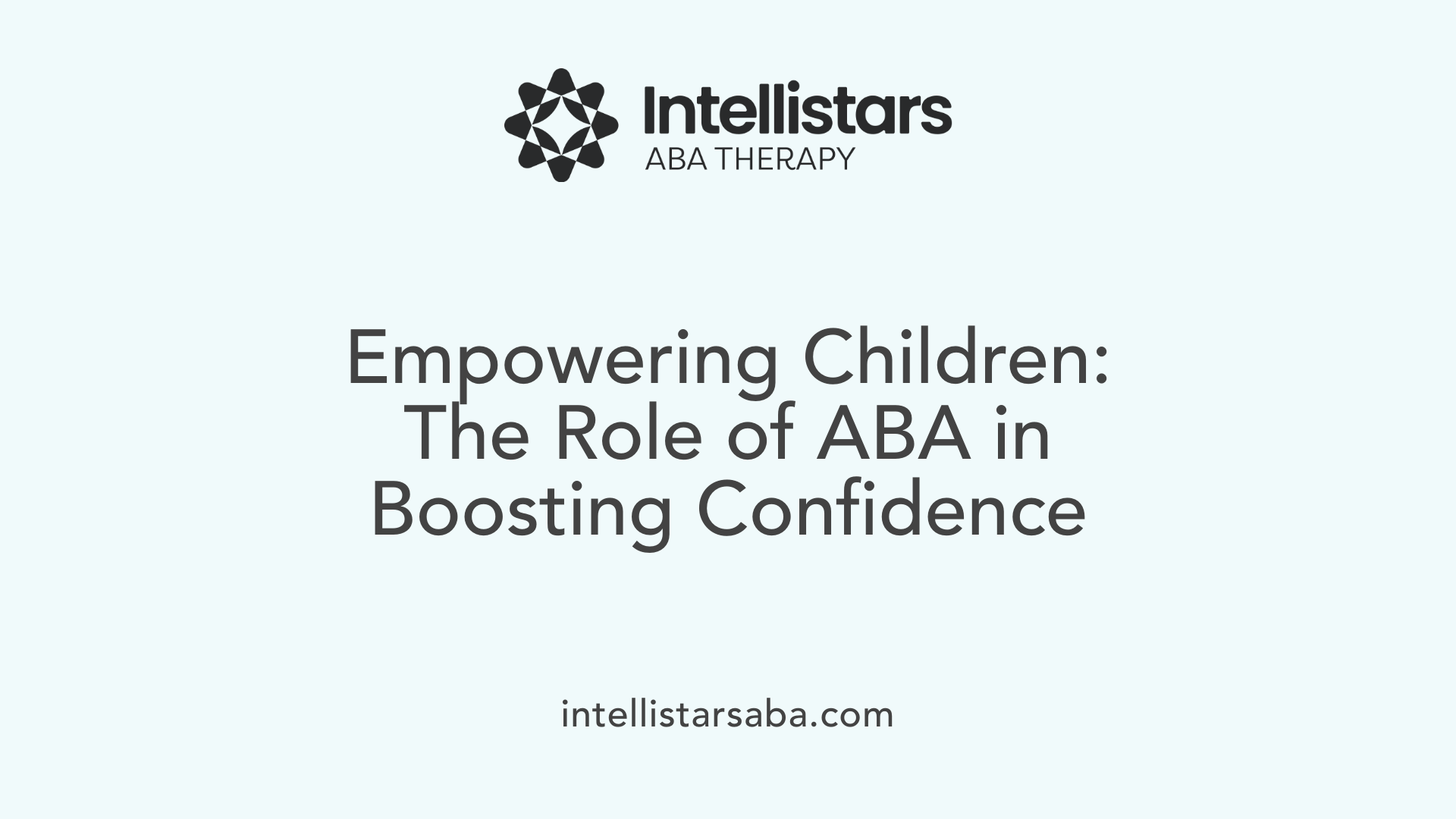
How can ABA therapy help build confidence in children with autism?
Applied Behavior Analysis (ABA) therapy is a proven, evidence-based approach designed to support children with autism in developing essential skills that contribute to their confidence and independence.
One of the main ways ABA helps build confidence is through structured, step-by-step teaching methods. Therapists break down complex tasks—such as self-care routines, household chores, or social interactions—into smaller, manageable parts. This approach allows children to experience success gradually, boosting their self-reliance and reducing frustration.
Positive reinforcement — rewarding desired behaviors with praise, tokens, or other incentives — encourages children to repeat these behaviors. As children practice and master new skills, they gain a sense of achievement that enhances their self-esteem.
ABA also concentrates heavily on developing social skills. Through targeted interventions, children learn to communicate effectively, share, take turns, and understand social norms. These skills help children form friendships and feel more comfortable in social settings, directly impacting their confidence.
Family and caregiver involvement is integral to effective ABA therapy. Parents are trained to reinforce skills at home and support consistent practice across various environments. This reinforcement solidifies learning, helping children apply their new skills confidently in everyday life.
Furthermore, ABA techniques employ visual supports, social stories, and behavioral cues that make learning more accessible and less overwhelming. Over time, children become more adept at managing transitions and handling changes calmly, which fosters resilience.
Overall, ABA therapy nurtures a child's ability to handle daily tasks, engage socially, and navigate challenges with increased competence and assurance. The combined effect of skill mastery, positive reinforcement, and family support helps children develop lasting confidence that positively influences their overall growth and well-being.
Effective Techniques in ABA to Promote Independence and Social Skills
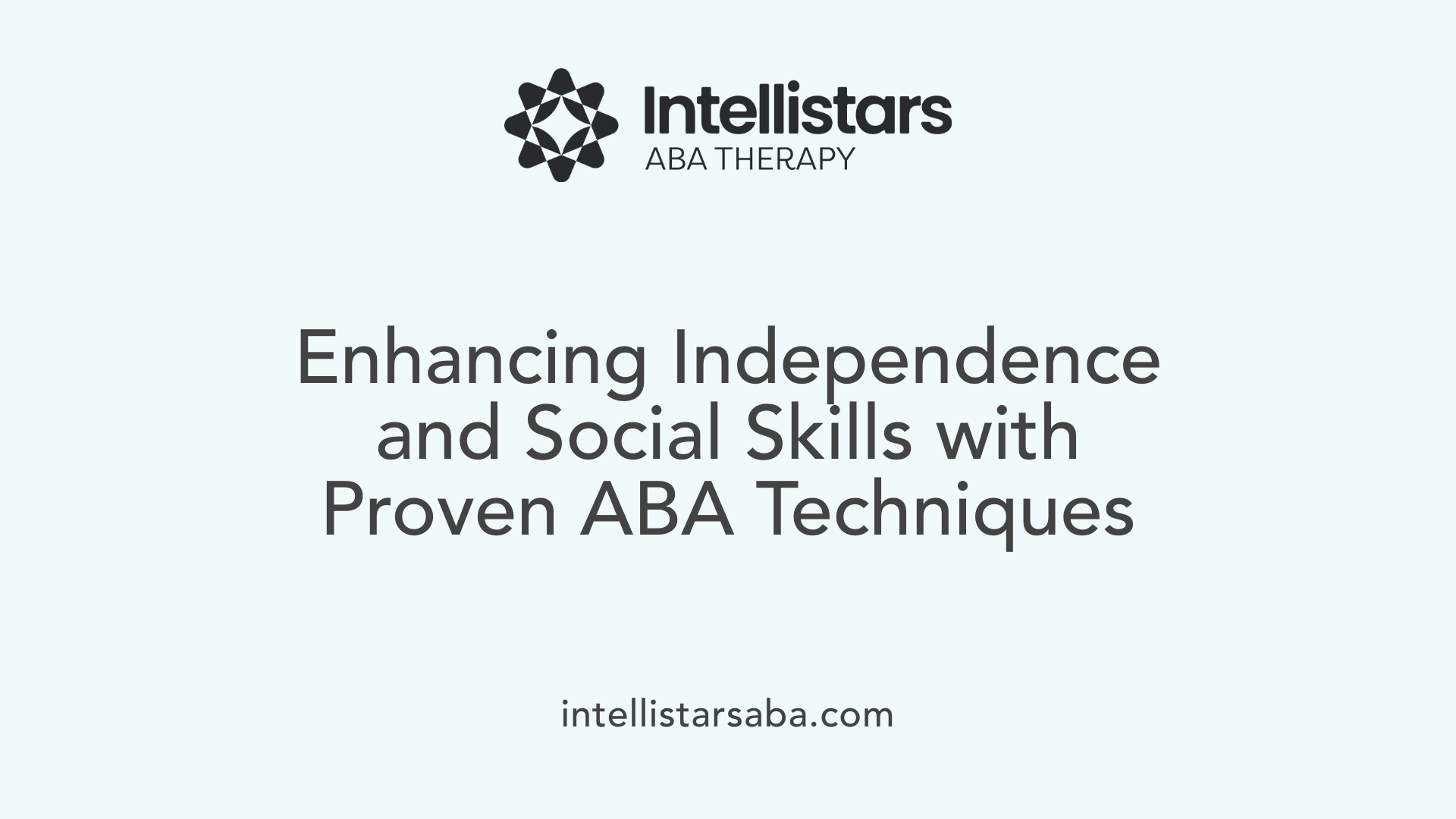
What strategies and techniques are used in ABA to promote confidence, independence, and social skills?
Applied Behavior Analysis (ABA) utilizes a range of effective strategies and methods to help children with autism improve their social skills, independence, and self-esteem. These approaches are tailored to each child's unique strengths and challenges, ensuring a personalized path to growth.
One of the primary techniques is positive reinforcement, which rewards desired behaviors like sharing, communication, or completing daily routines. This encouragement motivates children to repeat these behaviors independently. Through visual schedules, cues, and social stories, children learn routines and social norms in a structured manner, reducing anxiety and building confidence.
Modeling and role-playing are also widely used, allowing children to observe and practice appropriate behaviors in a safe environment. Breaking down complex skills into smaller, manageable steps—known as task analysis—enables children to achieve success gradually, increasing their sense of competence.
Structured social skills curricula, peer-mediated activities, and naturalistic teaching methods involve real-life interactions, encouraging children to apply skills in everyday situations. For example, group activities promote turn-taking and sharing, while role-playing helps children navigate social scenarios.
Visual supports, such as picture cards or visual timers, assist children in understanding expectations and transitions, fostering independence. Furthermore, behavioral interventions often include strategies like incidental teaching, where learning occurs spontaneously during play or everyday activities.
Overall, ABA’s emphasis on consistency, reinforcement, and individualized plans helps children develop essential social competencies and self-reliance. This systematic approach not only improves day-to-day functioning but also enhances self-esteem as children see themselves mastering new skills and navigating social environments with greater ease.
Building Self-Esteem and Self-Care Skills with ABA
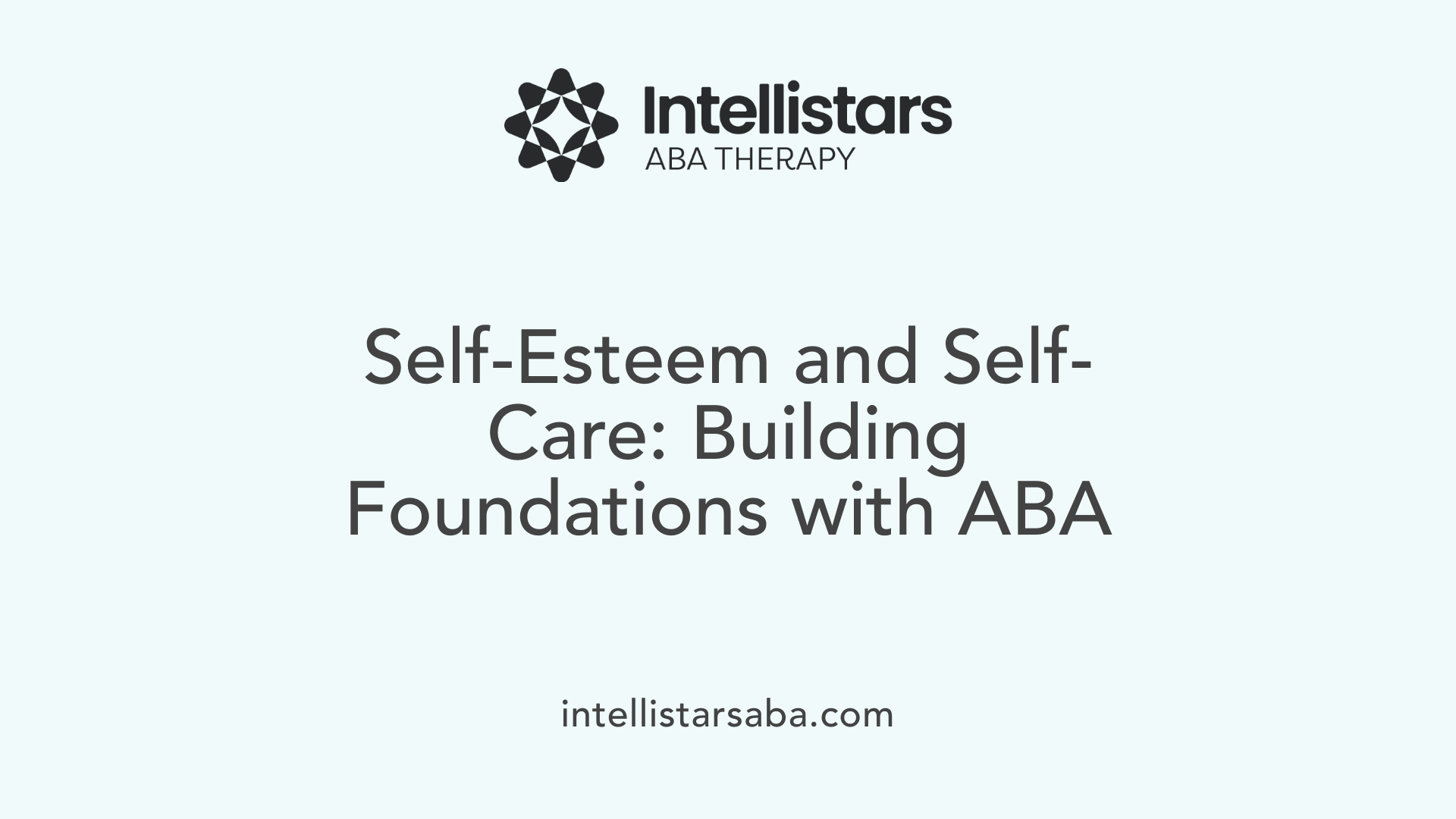
How does ABA improve self-esteem and self-care skills in children with autism?
Applied Behavior Analysis (ABA) is a highly effective, evidence-based therapy that helps children with autism strengthen their self-esteem and develop essential self-care skills. The approach centers on positive reinforcement, rewarding desired behaviors to encourage their repetition and build confidence.
ABA teaching methods often involve breaking down complex tasks into small, manageable steps, making them easier for children to learn and master. When a child successfully completes a step, they experience a sense of achievement, which boosts their self-confidence. This process supports emotional regulation and promotes a positive self-image.
Personalized ABA programs focus on celebrating each child's individual strengths and interests. For example, incorporating their passions—like animals, computers, or art—can motivate children and enhance their sense of competence. Social engagement activities within ABA, such as turn-taking or sharing, further cultivate confidence by promoting successful interactions.
Supporting self-awareness and self-advocacy is also vital. ABA encourages children to recognize their abilities and express their needs assertively, fostering independence. Additionally, a neuropositive perspective within ABA emphasizes acceptance and resilience, helping children view themselves positively despite challenges.
Successful self-care routines, such as brushing teeth, dressing, or handwashing, are taught systematically using visual supports, modeling, and reinforcement. These routines are introduced gradually, ensuring mastery and confidence in daily activities.
In sum, ABA not only teaches practical skills but also nurtures a child's self-esteem by creating a supportive environment that emphasizes their progress, strengths, and potential. This comprehensive approach empowers children with autism to develop healthier self-images, become more independent, and confidently face new challenges.
Fostering Confidence Through Daily Routines and Behavioral Interventions
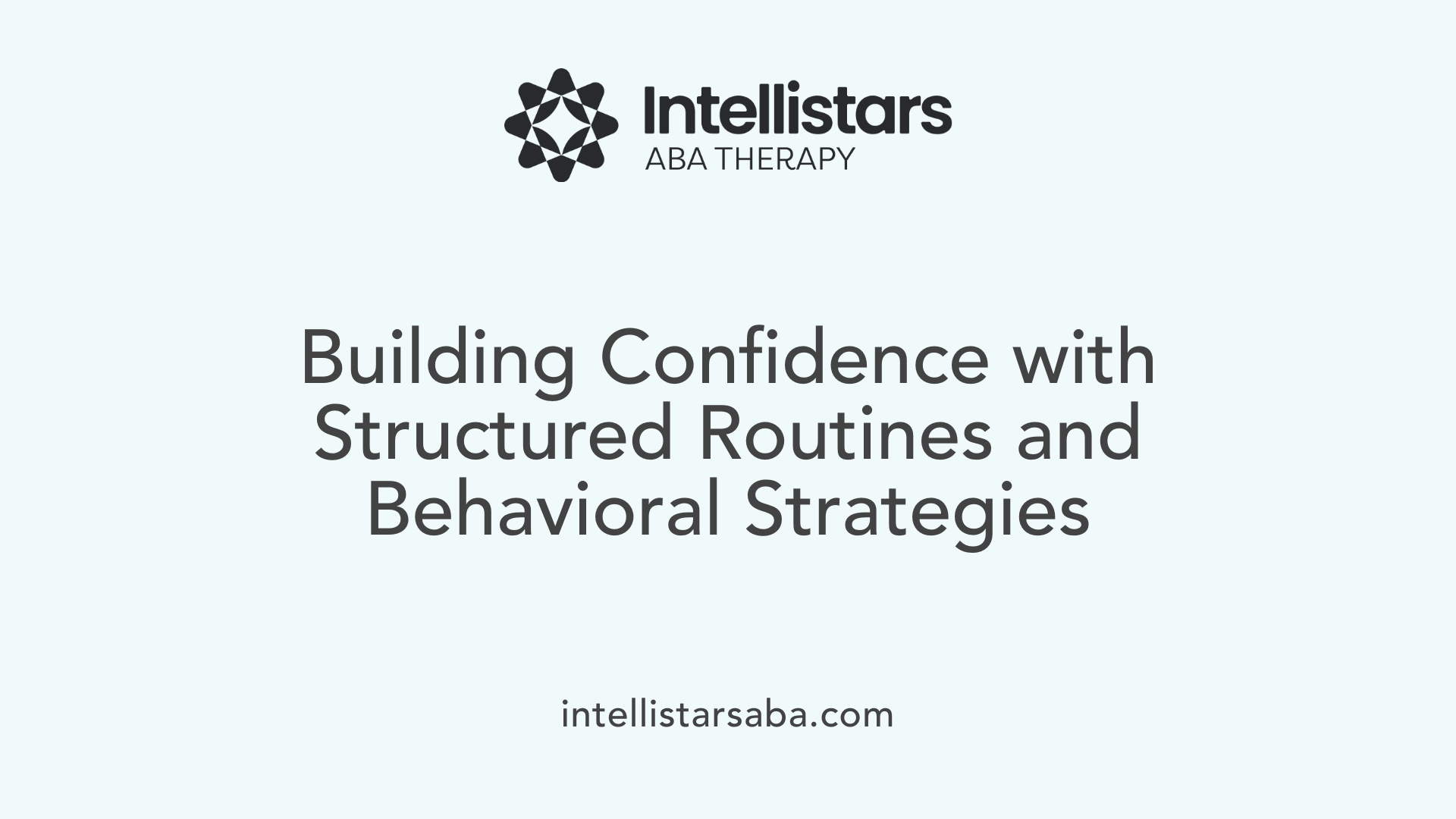
What methods can be used to foster confidence through daily routines and behavioral interventions?
Building self-esteem in children with autism is greatly supported by structured routines and targeted behavioral strategies. Establishing predictable, organized daily routines helps reduce anxiety and creates a sense of safety. Visual schedules, clear instructions, and step-by-step guides are effective tools that encourage independence and confidence in completing daily activities.
Positive reinforcement plays a vital role in reinforcing desired behaviors. Praise, rewards, or tangible incentives, when used consistently, motivate children and boost their self-esteem as they experience success and progress.
Teaching emotional regulation skills is another important method. Utilizing social stories, emotion charts, and modeling helps children recognize and understand their feelings. Developing these skills enhances their ability to cope with social situations and manage emotions, fostering a greater sense of confidence.
Activities such as role-playing, mindfulness exercises, and creating sensory-friendly environments allow children to practice coping strategies. These methods help them feel more in control of their emotional responses and build resilience.
Working closely with professionals, such as behavior analysts and therapists, ensures that interventions are tailored to the child's individual needs. Patience and consistency are crucial, as routines and strategies are gradually adapted to support continued growth.
In summary, combining visual supports, positive reinforcement, emotional skills training, and professional guidance forms a comprehensive approach to nurturing confidence in children with autism through daily routines and behavioral interventions.
Educational Goals of ABA Related to Confidence Development
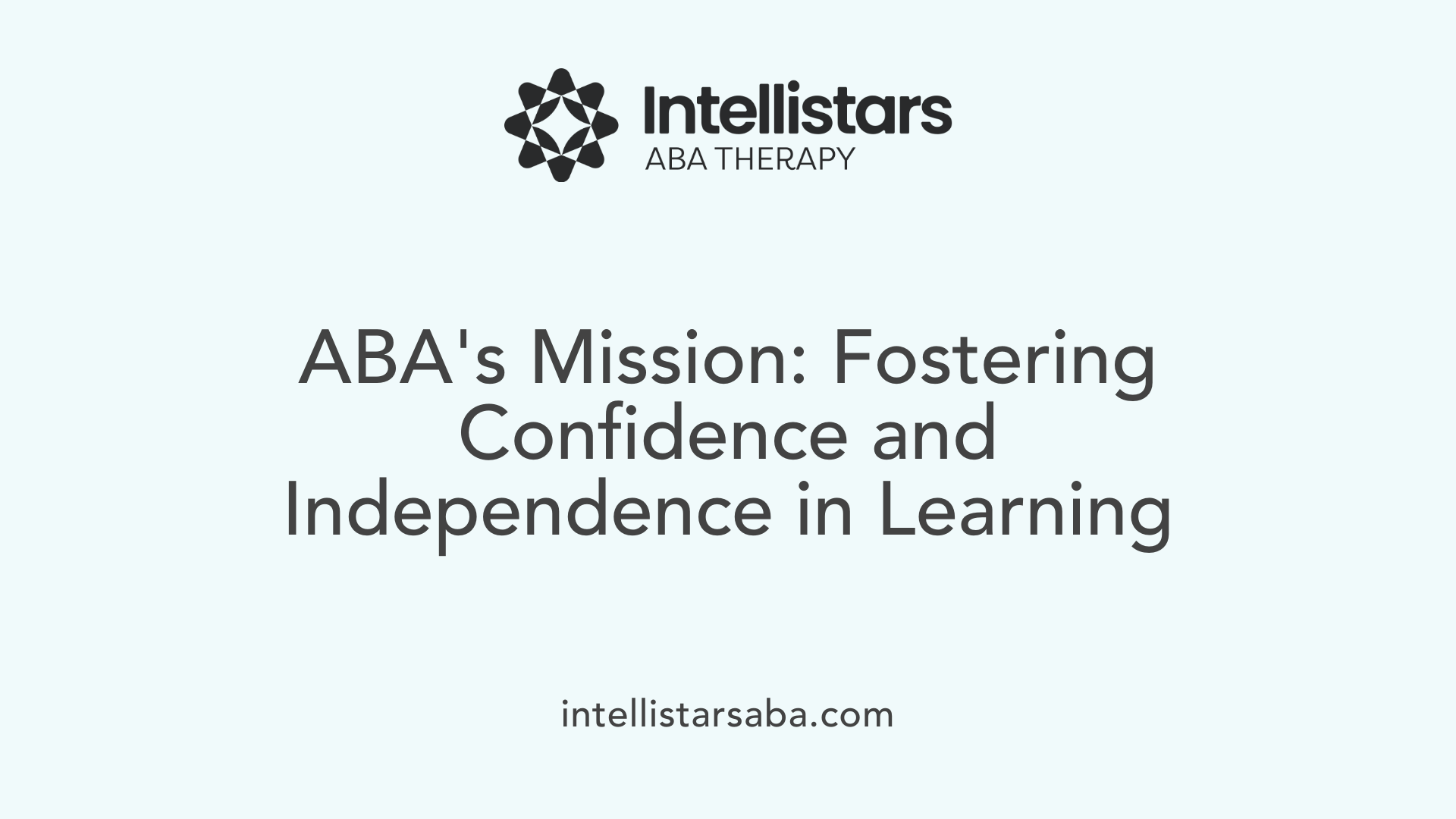
What are the educational goals of ABA therapy related to confidence development?
ABA therapy aims to build self-esteem, independence, and a sense of achievement in children with autism. The primary goal is to help children develop skills that make them feel more capable in social and daily situations.
A big focus is on improving social skills and communication. This helps children interact with others more comfortably and confidently. Additionally, ABA teaches adaptive behaviors and self-care routines, like dressing or brushing teeth, which foster a sense of independence.
Using positive reinforcement, ABA encourages children to recognize their progress. Tailored interventions are designed to meet each child's strengths and needs, helping them see their own growth. This personalized approach boosts their confidence as they learn new skills.
In summary, ABA's educational objectives include strengthening social, communication, and daily living abilities. These efforts help children believe in themselves, participate actively in life, and develop resilience. Ultimately, ABA supports children in achieving more autonomy and confidence, laying a foundation for successful, independent futures.
Moving Forward with Confidence and Support
Building confidence in children with autism through ABA is a comprehensive process that combines structured skill development, personalized interventions, and family involvement. By focusing on strengths, promoting independence, and fostering social skills, ABA helps children navigate their world with greater self-esteem and resilience. As communities and professionals continue to collaborate, children are empowered to achieve their full potential, leading more confident, independent, and fulfilling lives.
References
- Building Self-Esteem in Children With Autism
- Addressing Self-Esteem and Confidence in Children with Autism
- 5 Ways ABA Therapy Supports Children With Autism - PediaPlex
- How ABA Therapy Can Help Children with Autism Thrive
- Applied Behavior Analysis (ABA) | Autism Speaks
- Building confidence: autistic children and teenagers
- Empowering Autistic Children: Tips for Building Their Independence
- How ABA Therapy Build Independences in Daily Routines
- Building Self-Confidence Through Social Skills






